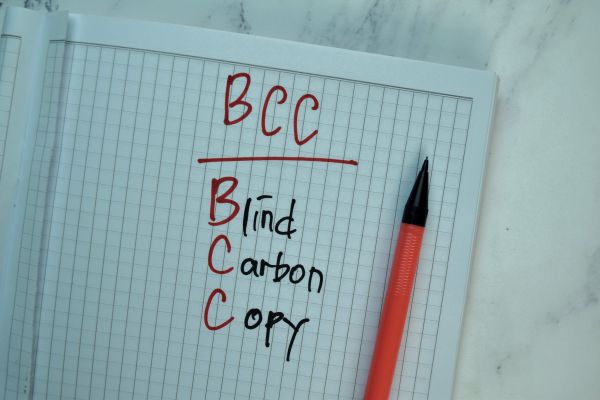Blind copy carbon is the term for a form of carbon that contains no information about the content it was copied from. This method is normally used by individuals who want to write a digital version of an analog document, such as a book or newspaper article. A blind carbon copy includes no identifying information about the original file.
Summary Table
| BCC | CC |
| No identity information about the writer | There is identity statement about the writer |
| No required to use anytime | Required for official email |
What is BCC?
A blind carbon copy is a carbon copy (or copy of a copy) that does not include any identifying information about the original document. This term is often used in business to refer to a piece of paper that contains nothing but a signature, or as an informal term for digital copies of physical documents.
A blind carbon copy (BCC) is a piece of paper that has no identifying information about the original document on which it was copied. This term is sometimes used in business to refer to an informal form of digital or hard copy communication that does not include any identifying information about the original file.
This type of communication usually contains only a signature or a name and nothing else, like: “On behalf of Company A.” A BCC can be used to verify that all parties involved in an agreement have agreed to its terms and conditions before signing it. It can also be used as a replacement for hard copies if more than one person needs to sign off on an agreement or letter. A BCC can also be used as proof of compliance with legal requirements
What is CC?
A copy carbon is a carbon copy (or copy of a copy) that includes identifying information about the original document. This term is often used in business to refer to a piece of paper with identifying information, such as page numbers, author’s name, or company name. Copy carbon is usually used in the context of business documents, such as contracts and financial statements.
Copy carbon is sometimes used in place of the term digital copies. The phrase “digital copy” refers to a copy of a document that has been created using software or a digital device.
BCC VS CC
The difference between a blind carbon copy and a copy carbon is that the blind carbon copy does not include any identifying information about the original document. The copy carbon includes identifying information about the original document.
In business, the terms “blind carbon copy” and “copy carbon” are often used interchangeably. In fact, some sources argue that there is no difference between the two terms.
But as a consumer, you need to know the difference between these two versions of carbon copies. In this article, we’ll explain what a blind carbon copy is and how it differs from a copy carbon.






